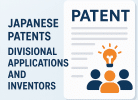Toyota Motor Corporation announced in Tokyo on April 8 that it would be releasing its patents related to hybrid vehicle (HV) technologies, totaling over 23,000 patents, for free use up to 2030. These patents relate to the motor, power control units, and more technology important to their HVs like the Prius. Commentators have been discussing Toyota’s bold move and its intentions. The program moves from the fiercer competitive models of IP use, but Toyota still intends to make money and, apparently, improve the world.
Naoki Ikeda remarks that though all-electric vehicles (EVs) and fuel cell vehicles (FCVs) attract more attention as zero-carbon emissions cars (in their driving, at least), it is not realistic to think these will flood the market for a long time due to costs and other practical restrictions. So Toyota’s stated intention to help decrease overall emissions by increasing the market share of HVs makes sense to him. Increasing HVs is the practical step to take until EV technology can take root widely, in other words. Toyota’s Chief Technology Officer and Vice President Shigeki Terashi pressed the point that Toyota by itself can only do so much to decrease carbon emissions globally, so its sharing the technology is meant to raise the cleanness of other companies’ vehicles [1].
Meanwhile, Toyota expects to make money indirectly from its technology through integration consultation and training services and sale of parts to others who use their HV patent ideas. It is reorganizing some divisions to prepare for large-scale support projects. [2] Part of the reason seems to lie in hopes of improving Toyota’s image in the global market–as a sharing, partnering company. [1]
What about competition? Again, Mr. Terashi reassured listeners that Toyota is already working on technology beyond what it already has. He commented that Toyota is putting the pressure on itself to continue to innovate and help the environment. Mr. Ikeda thinks this move is a fitting way forward for Toyota’s sustainable development, even if it does not make huge profits now [1]. Kanji Takahashi even points out that Toyota may be trying to put off the era of EVs, by increasing its overall technological influence on prevalent HV models around the world [3].
As a matter for intellectual property strategy, Toyota’s move shows a holistic outlook trying to leverage good PR, serve environmental protection, and expand influence on the automobile market. While many corporations hold their IP tightly to ward off and attack competitors, Toyota is using it as a weapon to attract others. It will take decades, however, to see how well this strategy pays off for Toyota (and the environment).
* The information provided on this website is for informational purposes only and is not intended as legal advice.
** For questions or consultation, please contact us for more information.
Taro Yaguchi
Sources
[1] Naoto IKEDA, “トヨタ ハイブリッド特許公開の真実 [The truth about Toyota’s public release of hybrid car patents],” 5 pages, IT Media, April 15, 2019, accessed May 16, 2019.
[2] Kenji MOMOTA, “HV特許を無償化、それでもトヨタの未来が見えてこない理由 [Free HV patents, and why we still cannot foresee Toyota’s future],” DIAMOND Online, April 18, 2019, accessed May 21, 2019.
[3] Kanji TAKAHASHI, “EV時代「待った」トヨタの深謀 HV関連特許を無償公開、“世界の標準化”を図る [Wait on the EVE era: Toyota’s hidden aim releasing HV-related patents for free and aiming for “global standardization”],” May 20, 2019, accessed May 21, 2019.






